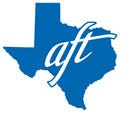Reading beyond the headlines adds context to ‘warning’ language on TRS pension fund
A story in the Quorum Report (a well-followed online news site for Texas politics) on July 23 seemed to sound an ominous alarm: “Much touted thirteenth check for retired teachers comes with warning that TRS pension fund may soon not be sound.” Subsequent posts of the article headline on Facebook sent many TRS members into a tizzy wondering about the health of their pensions and whether they would even get an supplemental payment (13th check) this year.
The problem with that headline is that it doesn’t carry any context; in sum, there’s no cause for alarm. Here’s the relevant piece of the article:
The board of the Teacher Retirement System pulled the trigger on a 13th check to retirees this past week with an acknowledgment that the TRS pension fund may not be sound come November.
The last time the TRS board issued a 13th check was in 2007. That extra check, rare as it is, requires both legislative approval and a strict standard of actuarial soundness of the pension fund. Executive Director Brian Guthrie said that actuarial soundness existed, but it could be fleeting due to current returns on pension investments.
“The returns have been fairly flat this year or not up to what we would have anticipated, given the volatility in the marketplace,” Guthrie told the TRS board in a legislative briefing last Thursday. “So, there’s a possibility we will not be actuarially sound, by definition, when we come back in November.”
In other words, TRS officials were saying they needed to get the 13th check out sooner, rather than later to follow the letter of the law with the pension fund being “sound” to allow for any benefit increase in the form of that payment. TRS expects another valuation report in November, and if that valuation were to put the pension fund outside of “sound,” the 13th check couldn’t be sent. The good news is that the 13th check supplemental payment (your regular pension payment capped at a maximum of $2,000) should go out the second week of September.
So what is all this stuff about the fund being “sound?” Law requires the fund to be in a position that all liabilities (e.g., retirement benefits) could be paid off in a period of about 30–31 years or less before any additional benefits can be distributed to retirees. That’s termed “actuarially sound.” Unfortunately, the TRS fund had not been in that position for quite some time, so the last cost of living increase for retirees was in 2013, and that only covered those who retired before August 31, 2004. (The last 13th check was in 2007.)
TRS is the sixth-largest pension fund in the country, is in good health, and continues to perform well with investments. But whether it’s “sound” or not primarily affects whether retiree benefits can increase — which obviously is crucial.
In the legislative session lawmakers passed Senate Bill 12 and Senate Bill 500, both of which boosted state funding to the TRS pension fund to make it actuarially sound with a funding period of about 29 years. SB 12 authorized the 13th check and established phased-in increases in contributions to the pension fund from the state, active employees and school districts. The chart below shows the new contribution rates — percentage of payroll for a TRS member — to 2025.
SB 500 took about $1 billion from the state’s Rainy Day Fund to pay for the 13th check outright, meaning it doesn’t need to be paid from the pension fund over time, and it paid upfront for the state’s contribution increase this year.
TRS Executive Director Guthrie ended his comments at the July 19 TRS Board of Trustees meeting by noting, “I’m very pleased to say that we are actuarially sound and will be for the future.” That seems to indicate that TRS is confident that the fund will remain sound in the longer term — even if there are periodic valuations that put it outside of that indicator. The result is that a permanent cost-of-living increase for retirees should be possible to authorize in the 2021 legislative session.
Although I started by stressing that there’s no cause for alarm, let me end by cautioning that no one can predict the future of the stock market. Since TRS relies heavily on investment returns, it is possible that even a slight dip in expected returns over a long period of time (or, obviously, a significant and lengthy economic downturn) could turn TRS’s conservative estimate for future revenue on its head and wipe out any possibility for a cost-of-living increase. Our job is to make sure we elect legislators who understand the need to keep the promise of a dignified retirement for educators, so that regardless of the state of the fund in 2021, these lawmakers will seek new revenue or find a solution to fund a cost-of-living increase for retirees. The Legislature put us on the right path last spring, and we need to ensure that Texas keeps that course.
And a final note: The status of TRS retiree health care is an entirely separate issue. Stay tuned for analysis on that issue in the near future.
By Rob D’Amico, Texas AFT Communications Director
(Follow on Twitter @damicoaustin and @TexasAFT)
